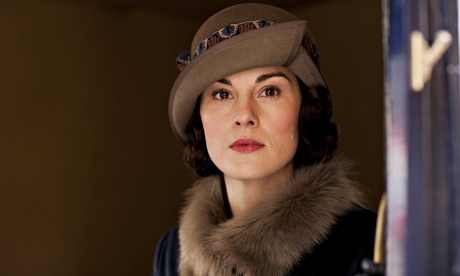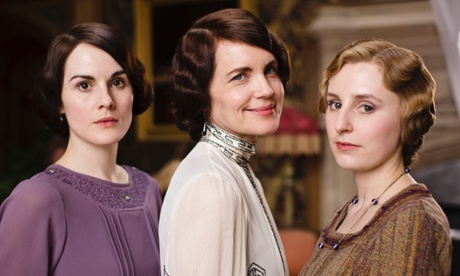The son of a Scottish immigrant who worked as a servant, Donald Trump could hardly wait for his banquet at Buckingham Palace. A seat next to Elizabeth II conferred a sense of accomplishment little else could.
To many, such behavior from an American president appeared downright unseemly. But how could we scoff? How else have so many of us been eagerly awaiting the return of Downton Abbey?
TV and film can be transporting, giving us glimpses of lives we can only imagine imperfectly. Decades before Julian Fellowes’ creation came forth to conquer America, PBS offered a steady diet of British clotted cream. Royals, aristocrats, castles, servants, sex. Such is the stuff of which Downton daydreams are made.
We make our own fantasies too. As a boy, watching Gone With the Wind, I saw plantation houses for which I thought I could sell my soul. It seemed such an alluring way of life.
No wonder people complain of being lectured about slavery when they visit Savannah or Charleston. They, like me, have imagined themselves in the master’s place. No work to be done, fanned on white-pillared porches, sipping cooling drinks, pondering pleasures to come. Is it surprising so many, confronted by the nightmare behind the reverie, recoil in unacknowledged shame?
I came to this crossroads early, no longer able to overlook the anguish of my ancestors. I saw exquisite architecture and ideas of gracious hospitality but knew both to be built on the worst criminality.
Fortunately, thanks to green England, I was able to transfer my affections. The Forsyte Saga, Upstairs Downstairs, Brideshead Revisited, The Admirable Crichton. The Shooting Party, The Remains of the Day, Gosford Park. They became my refuge and taught me much. Entranced by an elegant aesthetic, reading countless books, even attending the Attingham Summer School to study famous country houses, I sought an elusive loveliness, untroubled by oppression.
I know I never escaped. I had only embraced a new quagmire of contradictory caprice.
At the very lightest level, all this means I know that Downton – the whole phenomenon, the TV series, the film, the traveling exhibition, the merchandising – is a ludicrous and ahistorical fancy.
I know, for example, that contrary to what we see on Fellowes’ screen, non-royal butlers did not wear white waistcoats and that waiters did not wear dinner jackets at all. I know ladies were never gloved while drinking or eating, candles were never used on a luncheon table and candle shades, now found only in royal residences, were in fact universal. For enthusiasts like me, it’s such esoterica which makes Downton so enjoyable.
But as in my love affair with the plantations of the American south, there was a wriggling worm in the bud.
How alike our ruling classes are. How nefarious the sources of their vast wealth, on which such beautiful homes were built.
In the UK, to take just one example, a house as sublime as Harewood, near Leeds, altered by Robert Adam, was funded by the infamous triangular trade. Even English currency came to be defined by slavery. With abolition by Britain in 1833 came compensation to 46,000 slave owners for 800,000 liberated Africans, until the banks were rescued in 2009 the largest government bailout in history.
There were other sources of income. Indian opium, imposed on China. Farms in Ireland. The wealth behind many of the estates of England was no less tainted than that which built plantations in Virginia, Alabama and Georgia.
Fellowes was careful to give his great house a more benign foundation. The Earl of Grantham, we are told, derives his affluence straight from his Yorkshire estates.
Hit hard by agricultural depressions, he takes an option not available to his tenants: he marries the daughter of an American millionaire. That said millionaire is an untitled Jew, a dry goods merchant from Cincinnati, is among storylines meant to show us what a good egg the earl really is, an unlikely egalitarian in tweeds. But he’s an imprudent one too: by investing his wife’s millions in a Canadian railway that goes bankrupt, Grantham places all his loved ones in peril.
Worse occurred in real life, of course. Much worse. Take the brutal, polluting mills and mines, like so many plantation fields, that often lay just outside the gates.
Of course, Downton isn’t real. So, to stay in the realm of art, consider Shipley, the neo-Palladian masterpiece DH Lawrence invented for Lady Chatterley’s Lover. There, Squire Leslie Winter talks of the miners who work his pits with all the condescension a planter might have for his slaves.
Chatting with the Prince of Wales, Winter quips: “The miners are perhaps not so ornamental as deer, but they are far more profitable.”
HRH replies: “If there were coal under Sandringham, I would open a mine on the lawns and think it first-rate landscape gardening. Oh, I am quite willing to exchange roe-deer for colliers, at the price.”
In the real world, many fine homes have been lost. Their deaths, like their lives, are all about the money.
In Lawrence’s book, the squire dies and his heirs tear down his hall to build semi-detached “villas” for workers. Lady Chatterley is shocked to learn such people are as capable of love as she is. One suspects Fellowes, the author of a novel called Snobs, no less, might feel a similar shock if told us ordinary people who love Downton, his facile but beautiful and seductive creation, are capable of sincere feeling too.
We are. And while we are equipped to daydream of such luxury for ourselves, or to pick nits with Fellowes’ staging while we swoon at his stars in their gorgeous firmament, we are also the heirs to those who did all the work, those who built the Downtons and the plantations.
We know a profound truth behind all their costly beauty and misery. Every stately home, in every land, belongs to us too.











